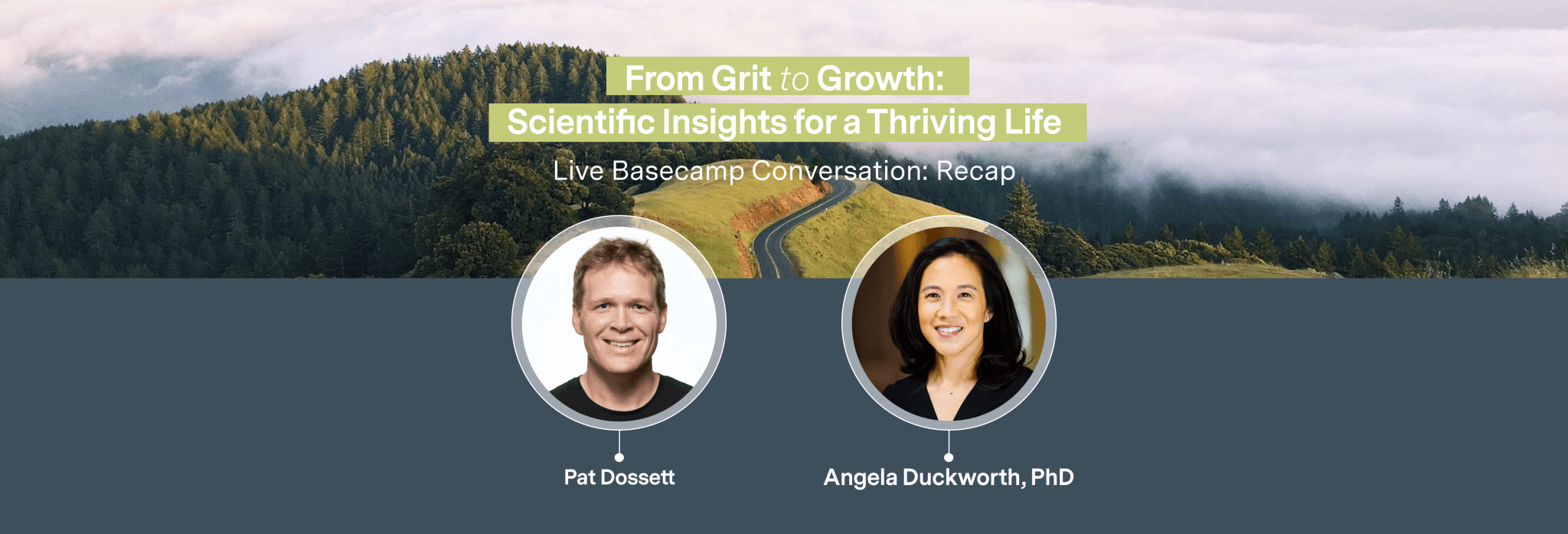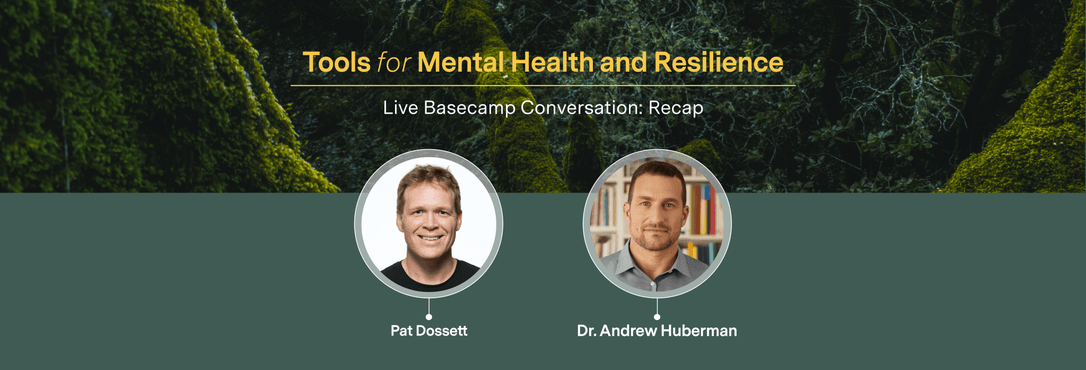Madefor Co-Founder and former Navy SEAL, Pat Dossett, sat down with world renowned research psychologist, professor, and best-selling author, Angela Duckworth, to discuss her research advancing the scientific insights that help us thrive. Angela talked about grit, the connection between grit and happiness, the benefits of being goal-driven, and how talent and skills are not mutually exclusive to one another. Dr. Duckworth also gave the group some tips on how to gain a grittier mindset -- at any age!
The Connection Between Happiness & Grit
Can happiness and grit co-exist? Well, the argument is more one of could we find happiness without grit? According to the data, it’s statistically much more likely that happiness and grit go together. In her personal opinion, Angela doesn’t think people are happy when they don't have something to do, and people who lack goals are profoundly distressed. The research agrees. In longitudinal studies, where happiness and grit are measured overtime, it’s repeatedly found that there's a virtuous cycle that happier people at time one tend to be grittier at time two. What makes all people happy at our core, whether we would describe ourselves as ambitious or not, is because our DNA is goal-driven.
When we talk about goals, are we only talking about things like climbing mountains or getting a Ph.D.? Absolutely not! A goal is a desired future state. This ranges from everything from a 10- or 5-year goal to something as simple as having the goal to make yourself lunch or call your mother-in-law. There are two classifications of goals, personal and pro-social. Personal goals are goals that when achieved, you are better off. Pro-social goals are altruistic and when we achieve them, someone else is better off. The thing that brings all this together is grit. Having long term goals that you're willing to and do work hard for. The goals are so relevant and important to you, they become a big part of your identity. Data suggests that people in general tend to be happier when pursuing pro-social goals than personal goals.
If your goals are only for you, meaning your field of view is completely taken up with yourself, it will never get you to happiness. That’s something to really think about.
Being Goal-Driven: Why Effort Trumps Talent
Can we gain grit and better achieve our goals at any age? Science says we can. Across the human lifespan, there's remarkable plasticity, not only neuronal growth which continues throughout the adult lifespan but also a kind of remodeling of synapses and connections. Grit is just like all the other characteristics in your personality you can intentionally change. Grit comes down to passion and perseverance. Passion leads you first, however, if you don’t know what you’re passionate about play and explore, learn, and be open to new experiences to figure out what light sparks in you or what really resonates or what you are just repetitively curious about. That’s going to lead you to practice and ultimately result in achievement. The achievement also creates a skill.
Two things determine skill: effort and talent. When we talk about talent in this sense, it’s the rate at which you’re getting better. Talent does matter, but effort counts twice. We all have natural abilities that make skill development easy. However, we have things we want to achieve or we think we’ll enjoy that we may not have a talent for at the onset of our interest. With effort – hard work and hours invested – you can develop a skill.
When you do something, again and again, you become better at it. This is the nature of human skill. Take friendships, for instance. The first time you talk to someone, it may not go great, or it can feel very surface-level. Friendship needs repetition and consistency and habit and routine, just like physical therapy. You need to put the time and effort in, and then your skill becomes stronger.
When you look at super-achievers, such as specialists and experts in various fields, they're kind of voluntarily obsessed with one thing that they think about 24/7, 52 weeks a year. These super-achievers were not always experts, they had to be willing to play and try and make mistakes to find the thing they felt truly passionate about and wanted to pursue. You can do that at any point in life from 23 to 83 (and beyond).
How to Get a Grittier Mindset
After all this talk about grit and goals, passion and persistence, it can be difficult to assess where you are as it pertains to your grittiness. What if you don’t really know what you’re passionate about? Maybe you are someone who stares at a wall, having a total blank, when purpose is mentioned. You’re not the only one -- it just seems a lot more complicated than it is. It’s actually pretty simple - start on the step that most resonates with where you are in your personal journey.
Three steps for getting a grittier mindset:
- Play - So maybe you don’t know what it is you are really passionate about and need some help. Embark on some playful learning. It’s time to let yourself go and embrace play. If something feels really good and you feel yourself getting excited about it - notice that. If something makes you feel heavy - move away from it. After awhile, you’ll start to identify areas that ignite passion and construct that passion into goals.
- Practice - Growth can only come with understanding and awareness, so you need to get out there and practice achieving your goals. Yes, practice it. Not every effort will be a success. You need to take each mistake, misstep, or failure as a lesson - they are the key to developing grit.
- Purpose - Purpose is a deep interest you have over the long-term. It’s something you want to take a deep-dive in. Purpose is that thing that you want to become a part of your life. What makes you feel that way? What things are you doing in service of your purpose?
Just remember, being human makes you pre-wired for grit. Wanting to change is all you need, at any age, to make changes. Let passion lead you, embrace play, practice your passion, and grow your purpose to gain a grittier frame of mind, enhanced resilience, and an even happier life!



